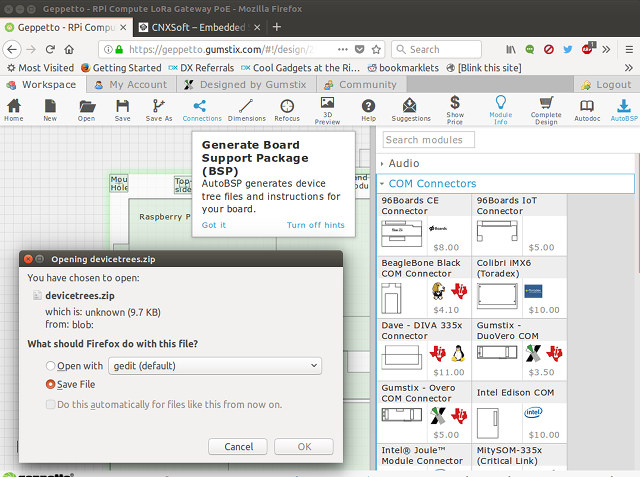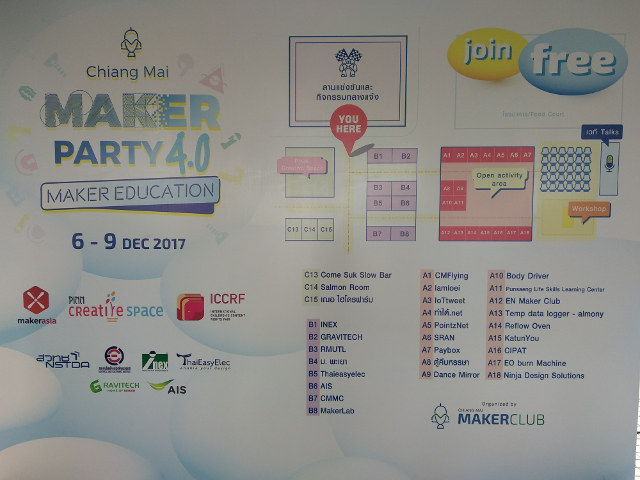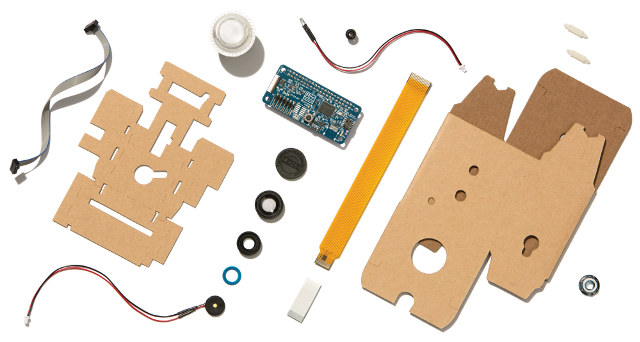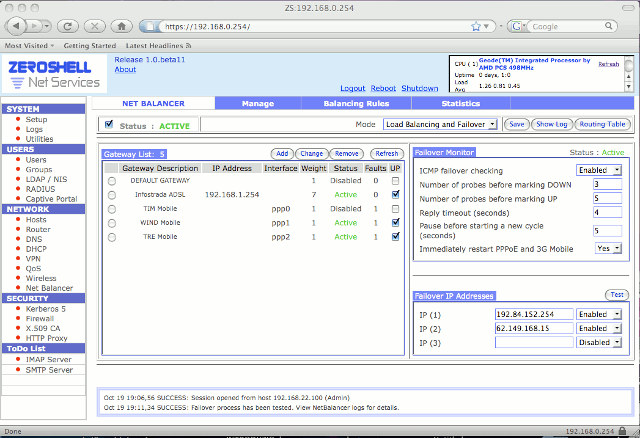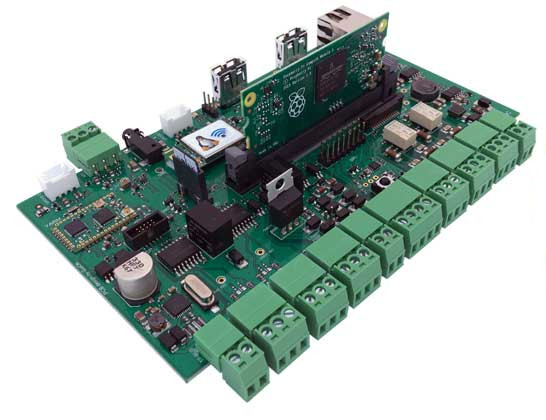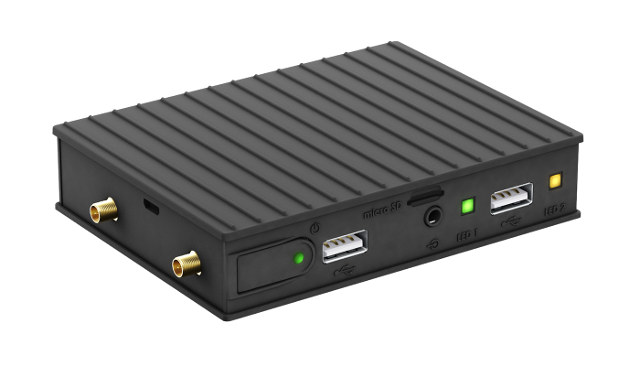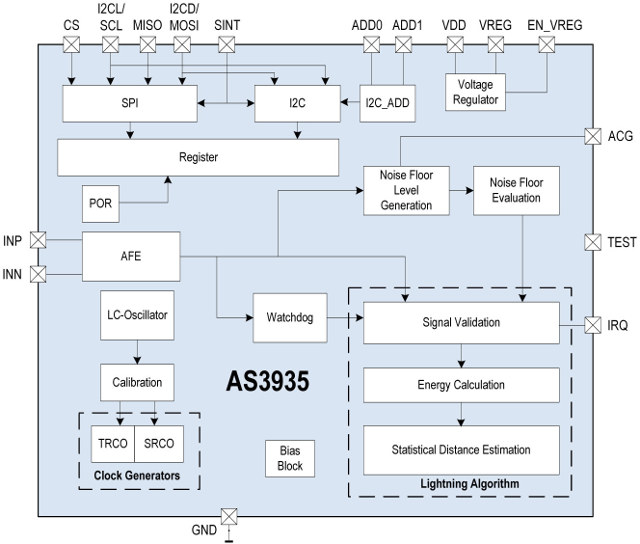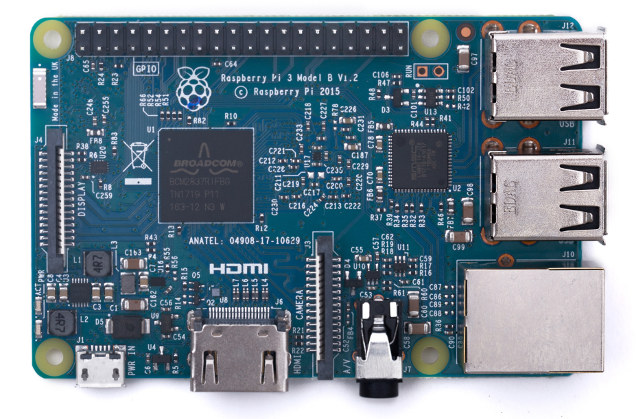Gumstix launched Geppetto Design-To-Order (D2O) system back in 2013, and at the time you could design complete baseboard for their Overo CoMs right in your Chrome or Firefox web browser, and once complete, order the board from the website. The system is meant to save you time, and “design” here does not mean drawing schematics, and laying out PCBs, but instead selecting board size, and adding ports as needed. Since then, the company has added support for more modules, and you can now easily build you own baseboard for Raspberry Pi Compute Module, Technexion PICO-IMX6 module, Toradex Colibri SoM, 96Boards Mezzanine, and they even have Beaglebone Black and 96Board CE or IoT connectors, among others. Support for Qualcomm DragonBoard 410c, Atmel (Arduino) , and STMicro platforms is also being worked on. Their latest feature – AutoBSP – automatically generates device tree files for your custom boards, so you can simply […]
A Day at Chiang Mai Maker Party 4.0
The Chiang Mai Maker Party 4.0 is now taking place until December 9, and I went there today, as I was especially interested in the scheduled NB-IoT talk and workshop to find out what was the status about LPWA in Thailand. But there are many other activities planned, and if you happen to be in Chiang Main in the next few days, you may want to check out the schedule on the event page or Facebook. I’m going to go though what I’ve done today to give you a better idea about the event, or even the maker movement in Thailand. Booth and activity area should be the same over the 4 days, but the talks, open activity, and workshop will be different each day. Today, people could learn how to solder in the activity area. The even was not really big with manufacturers/sellers like ThaiEasyElec, INEX, or Gravitech closer […]
$45 AIY Vision Kit Adds Accelerated Computer Vision to Raspberry Pi Zero W Board
AIY Projects is an initiative launched by Google that aims to bring do-it yourself artificial intelligence to the maker community by providing affordable development kits to get started with the technology. The first project was AIY Projects Voice Kit, that basically transformed Raspberry Pi 3 board into a Google Home device by adding the necessary hardware to support Google Assistant SDK, and an enclosure. The company has now launched another maker kit with AIY Project Vision Kit that adds a HAT board powered by Intel/Movidius Myriad 2 VPU to Raspberry Pi Zero W, in order to accelerate image & objects recognition using TensorFlow’s machine learning models. The kit includes the following items: Vision Bonnet accessory board powered by Myriad 2 VPU (MA2450) 2x 11mm plastic standoffs 24mm RGB arcade button and nut 1x Privacy LED 1x LED bezel 1x 1/4/20 flanged nut Lens, lens washer, and lens magnet 50 mil […]
ZeroShell Firewall/Router Linux Distribution Works on x86 Hardware, Raspberry Pi 2/3, & (Some) Orange Pi Boards
We’ve just seen pfSense is now available for Arm via firewall appliances such as Netgate SG-3100, but AFAIK there’s no pfSense community Arm firmware images yet. Several Arm SoCs & boards are now supported by FreeBSD, so in theory pfSense could be ported to those, but the page on FreeBSD does not seem to have been updated for a while. If you want a firewall distributions with an easy-to-user web interface like pfSense, but that also works on cheaper Arm hardware, Linux based ZeroShell distribution could be worth a try, as beside working on Intel & AMD x86 platforms, the developers also provides images for Raspberry Pi 2 & 3 boards, and several Orange Pi boards, namely Orange Pi R1, Orange Pi Zero, Orange Pi PC, and Orange Pi Plus/Plus2. The latter is the only supported Arm board with Gigabit Ethernet. Some of ZeroShell features include: Load Balancing and Failover of […]
Acme CM3-Home is a Raspberry Pi 3 Compatible Board Designed for Home Automation
Raspberry Pi CM3 & CM3L modules are used in so many devices it’s hard to keep up. From NEC digital signage displays, to industrial touch panels, and IoT gateways, the Broadcom BCM2837 based system-on-module are found in more and more products and solutions, and number of announcements seems to have increased over the last few months. The latest product to leverage Raspberry Pi CM3L SoM is made by Italy based Acme Systems, and designed for home automation. CM3-HOME comes with opt0-isolated inputs compatible with KNX and DALI buses, various connectivity options (Ethernet, WiFi, Bluetooth, 868MHz ISM radio…), and other expansion port. Two edition of the boards are available: LITE and FULL, with the former suitable for most home automation project, and the latter adding support for some commercial lighting systems and energy harvesting Radio ISM nodes. Acme CM3-Home specifications: 200-pin SODIMM Module Slot compatible with Raspberry Pi CM3 / CM3L […]
Compulab IOT-GATE-RPi Industrial IoT Computer is Powered by Raspberry Pi CM3 Module
We’ve seen several industrial products powered by Raspberry Pi 3 board or CM3 module recently, with the likes of Industrial Shields Panel PC, TECHBASE ModBerry, or Pi/104 PC/104 compliant carrier board among others. We can now add another industrial computer based on Raspberry Pi CM3 module with Compulab IOT-GATE-RPi IoT gateway, with dual Ethernet port, support for 3G/LTE modems, a rugged case, and working in a wide temperature range of -40°C to 80°C. Compulab IOT-GATE-RPi specifications: SoC – Broadcom BCM2837 quad-core Cortex-A53 @ 1.2GHz with VideoCore IV GPU System Memory – 1GB LPDDR2 Storage – 4 to 64GB of soldered eMMC flash, micro SD socket Connectivity 2x 100Mbps Ethernet WiFi 802.11b/g/n, Bluetooth 4.1 BLE 3G / LTE cellular modem via mini-PCie module) Video Output – HDMI 1.3, up to 1920×1080 Audio – 3.5mm stereo line out jack, HDMI audio USB – 4x USB2.0 host port Serial 1x RS232 port, ultra-mini […]
Detect Lightning with Those AMS AS3935 “Thunder” Boards
Launched in 2012, AMS AS3935 Franklin lightning sensor is – at its name implies – a lightning sensing IC. The chip was designed for low power, portable or fixed wire-line applications, and beside detecting electrical emissions from lightning activity, it can also provide an estimation of the distance to the head of the storm from 40km away down to 1km, while filtering out other signals from motors, microwave ovens, etc… The chip interfaces via SPI or I2C to the host processor / micro-controller, and comes in a small MLPW-16 (4x4mm) package. Price is $3.55 per unit for 1k orders. Applications include wearables, golf carts, pool safety, portable GPS, bike computers, weather stations, uninterruptible power supplies, smart grid systems, environmental monitoring systems, etc… Basically, AS3935 can be used either for weather monitoring, or safety applications. I’ve found two maker boards with the chip: MikroElectronika Thunder Click board compatible with MikroBUS socket […]
Meet the Blue Version of Raspberry Pi 3 Board, For Brazil Only
It’s always fun to buy electronics and gadgets from China, while there are sometimes technical “headaches”, they are mostly solvable and part of the fun. But in some cases, government regulations and customs ruin the party even before you get the device. Most of the time, it’s just in the form of unexpected custom duties, but other times, you may get a phone call asking you to get some documents… With experience, I’ve learned to give up at that point, but I tried one before… The courier will usually not tell you exactly what you need, just some clues, so I’ll have to make a few phone calls… After 8 phone calls to different government officers, I discovered that I needed a document saying I do not need document… Hooray! But sadly, it could not be done over the phone, online, or by snail mail, I would have to go […]


